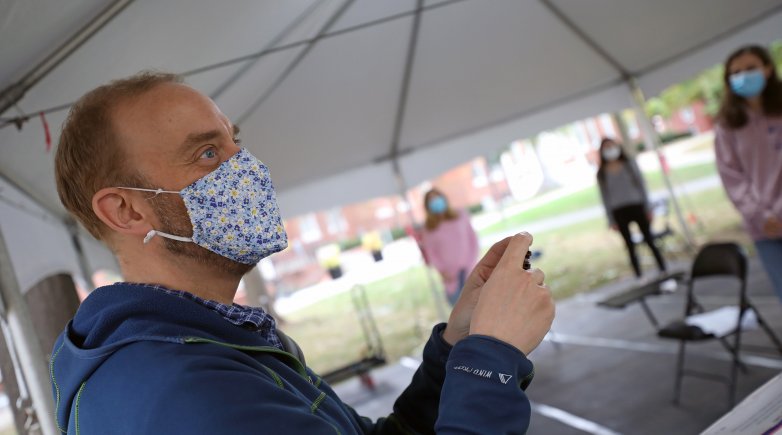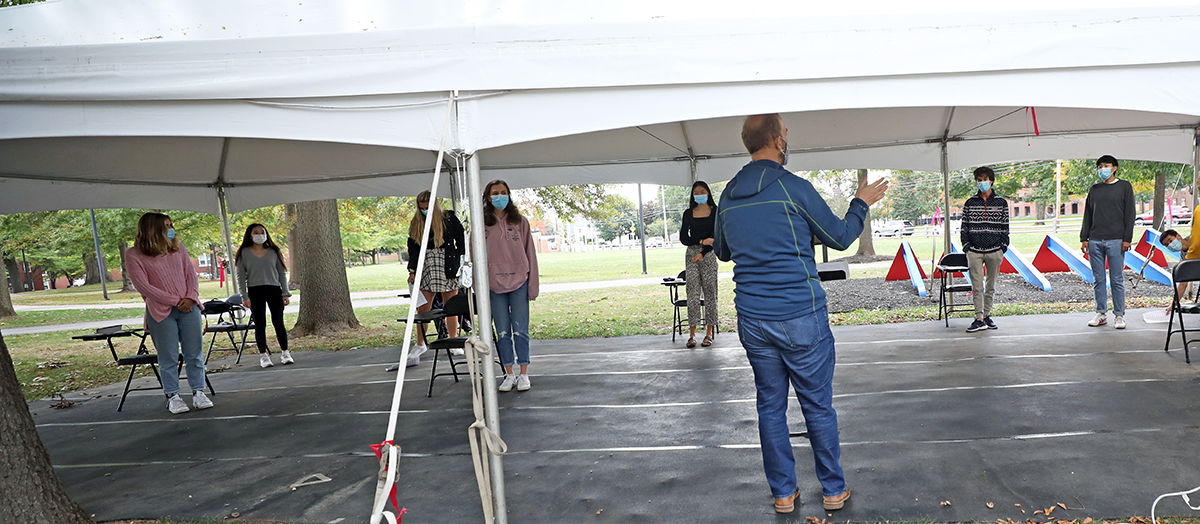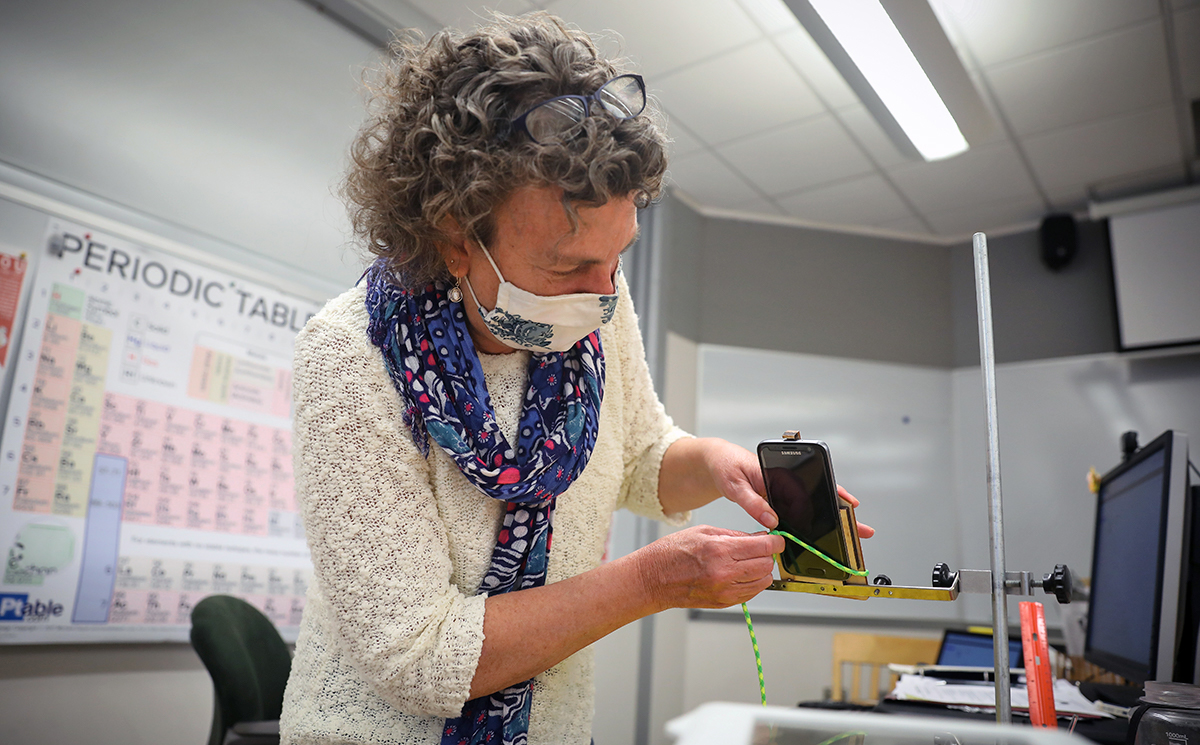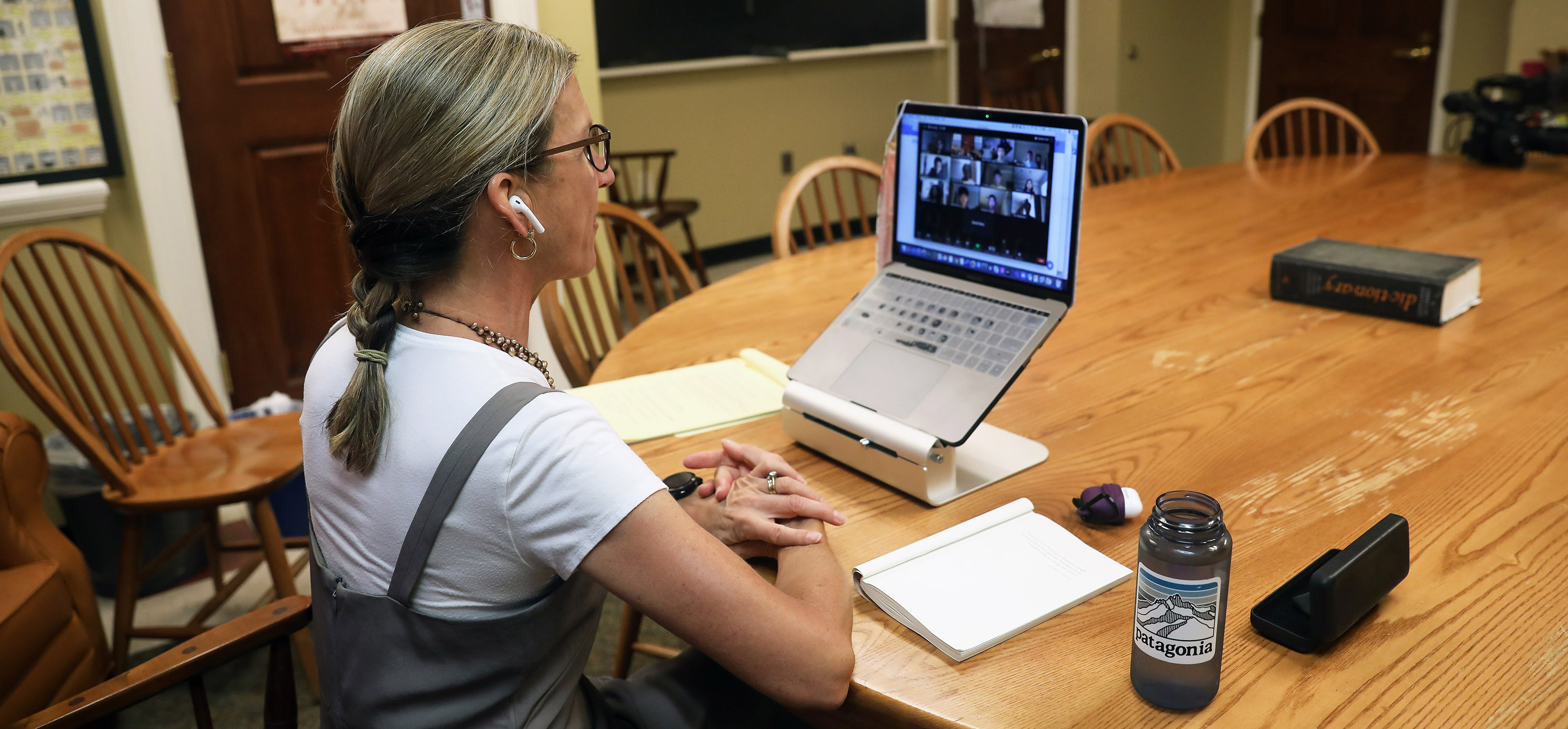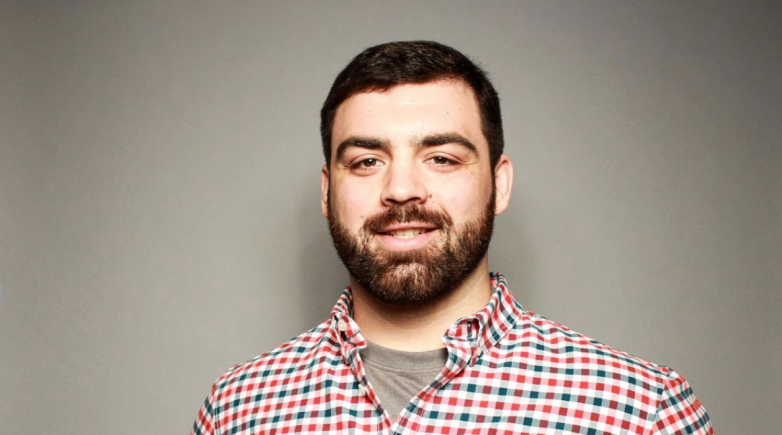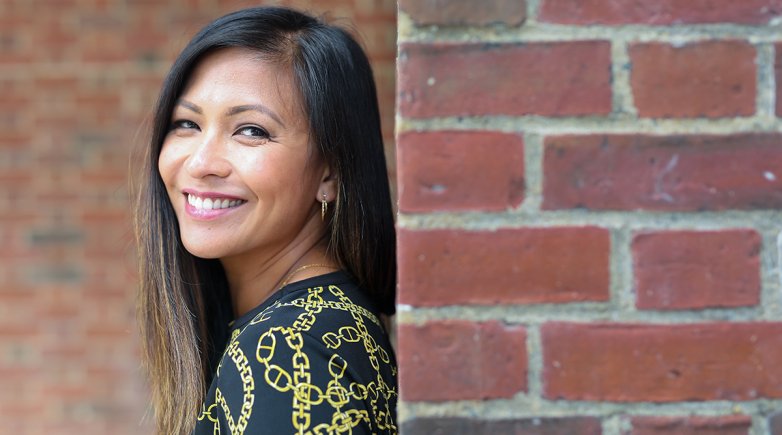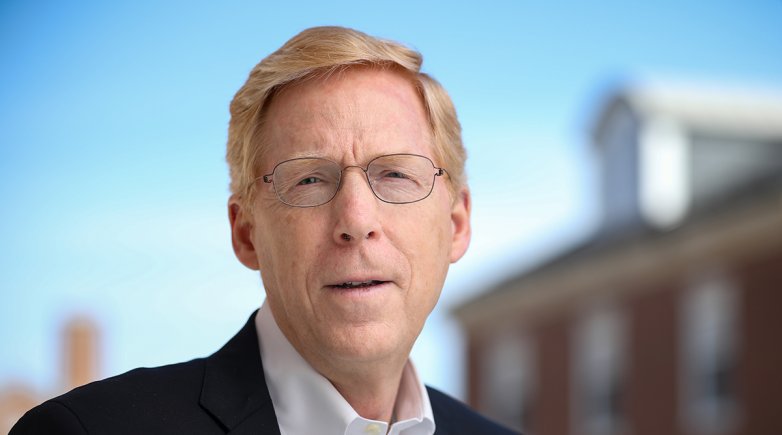The historical lens
McConnell knew he wanted to change his approach to creating intellectual engagement in his classes this term, Salem Witch Trials: A Global History of Witchcraft and United States History, Colonial Origins to 1861. “At the table, the idea of exploration and experimentation with ideas is present because it’s a corporate thing, and the teacher has a lot of ability to encourage this pursuit of knowledge,” he says. “Last spring it was very clear that in isolation students struggled with that.”
This fall, students will spend more time exploring digital materials during their asynchronous blocks. These materials will be more diverse than in previous sessions of the class, and will include geographic information system (GIS) maps, photos of historic artifacts, and texts from museum and historical archives.
“I’m going to ask them to look at picture artifacts or texts that are not in context. They’ll know they’re in context of the era we’re studying, but they’ll have to make sense of them,” McConnell explains. “I will also use discussion boards in which I give very specific questions for students to consider, which is quite the opposite of what you do in a Harkness class. It’s a much more directed type of approach when it’s asynchronous.”
McConnell aims for high energy in the synchronous Zoom meetings. “There seems to be more resilience and more of a sense of ‘we can make this work,’” he says. “It’s better than it was last spring. … It’s more democratic or more widespread conversation.” He typically starts classes with “general questions oriented toward subjects that I want the students to talk through. … In a physical Harkness session, I wouldn’t be as specific or guiding. I might at times, but not constantly. I’m hoping that a little bit of that can come back to our Harkness discussions that are synchronous.”
McConnell has revised assessments and assignments, partly due to shorter synchronous class time, but also because, like many faculty members, he seeks the direct involvement of students in the selection of course deliverables, to ensure excitement and connection. Tests are out. Small-group projects, including documentaries or TEDx-style videos, are in. Readings are reduced. Papers, presented to the class for group discussion, and online discussion boards form more of the assignments.
“I want students to have enthusiasm about what they’re doing, especially during the pandemic, where the last thing I want to do is make education yet another stress and burden for them,” McConnell says. “I want students to know that I recognize the conditions they’re in, that I’m flexible, that they’ll do work but I think that the work needs to be fun to some level. It should be arduous for sure. It shouldn’t be beyond what they can achieve, but it should stretch them.”
The global witchcraft course, for example, has undergone significant restructuring. The Salem component has been lengthened and, for the first time, it will be co-taught by McConnell and Benjamin C. Ray, emeritus professor of religious studies at the University of Virginia, author of several articles and a book on Salem, and a longtime research collaborator with McConnell. “Students will not only get a chance to interact with a scholar who has dedicated 20 years or so [to Salem], but they’ll also have the opportunity to ask him questions,” McConnell says. Students will dive deeply into themes of ostracism and violence. They will use the Salem Witch Trials Documentary Archive and Transcription Project, a website hosted by the University of Virginia and originated by Ray, as a major research tool. They will also be able to post their own research to the site, for which McConnell is the faculty curator.
“What I like to do is really problematize Salem,” McConnell says. “I try to get students to wrestle with this history, which has this large dialogue with what we’re living today, but try to isolate it to the point of getting it to individuals. As the lives of individuals come into view, students begin to understand the social forces at play and how certain beliefs shaped the decisions that were made. Soon, they recognize that some of the causative forces shaping the decisions made in the past are still alive and well today.”
McConnell adds, “My whole modus of teaching is to present conditions in which the student is almost ensnarled or entrapped in a way that they can’t help but develop some sense of sympathy, and hopefully empathy, for the historical past.”
